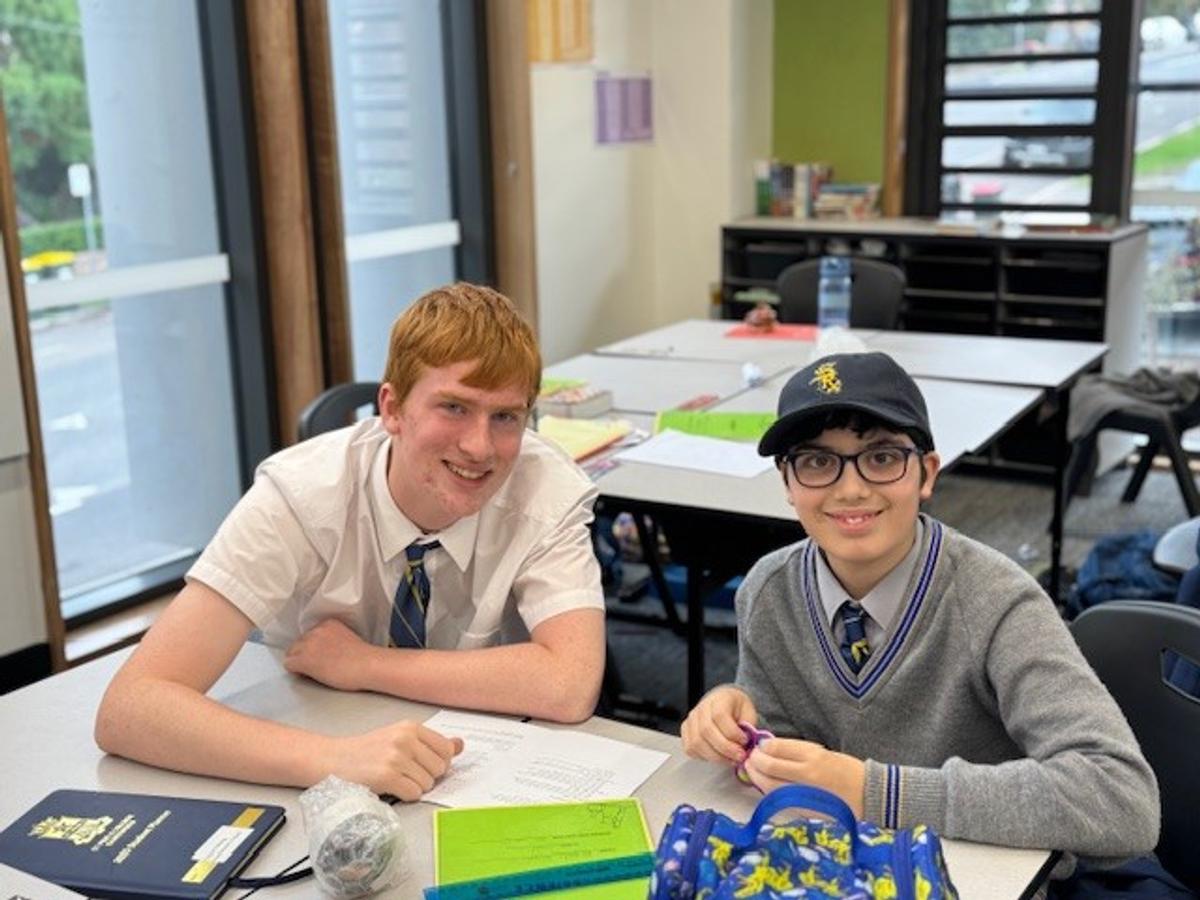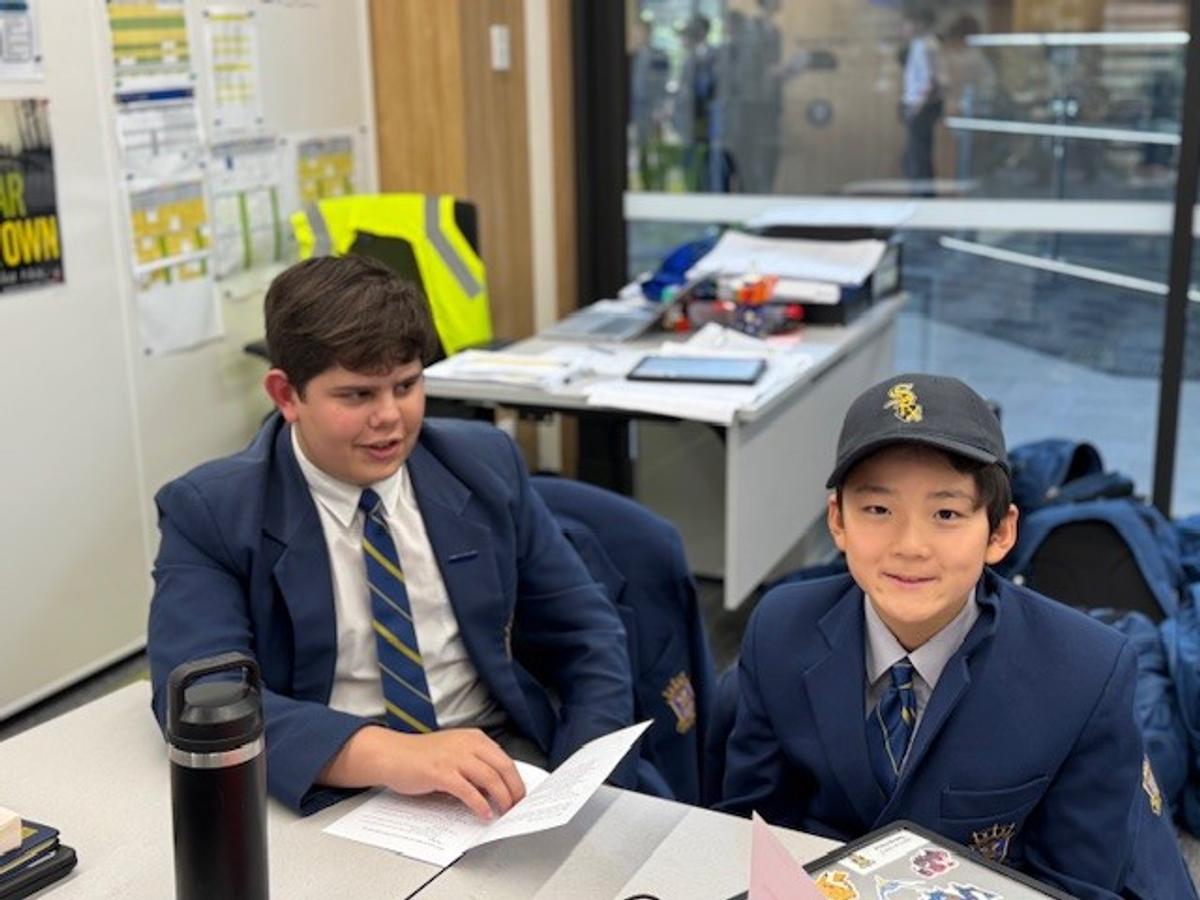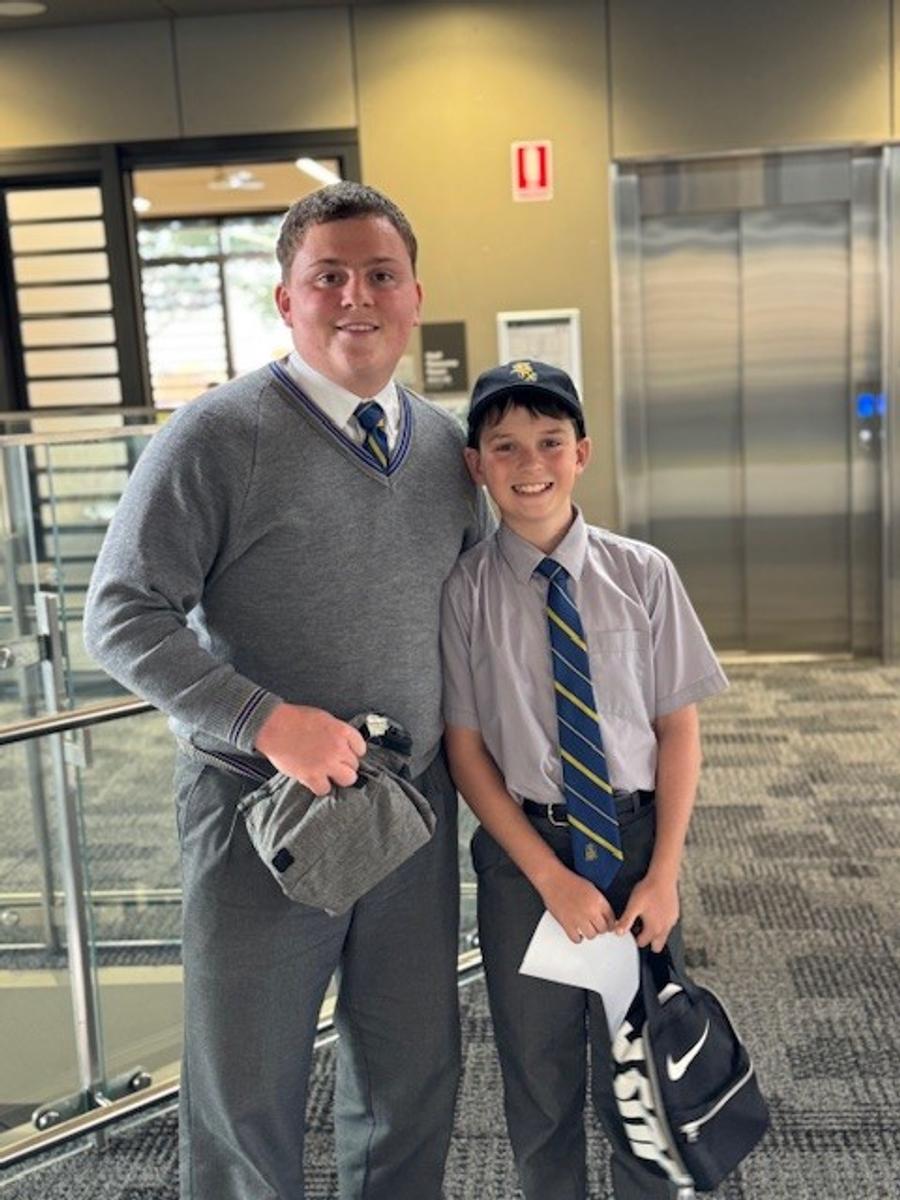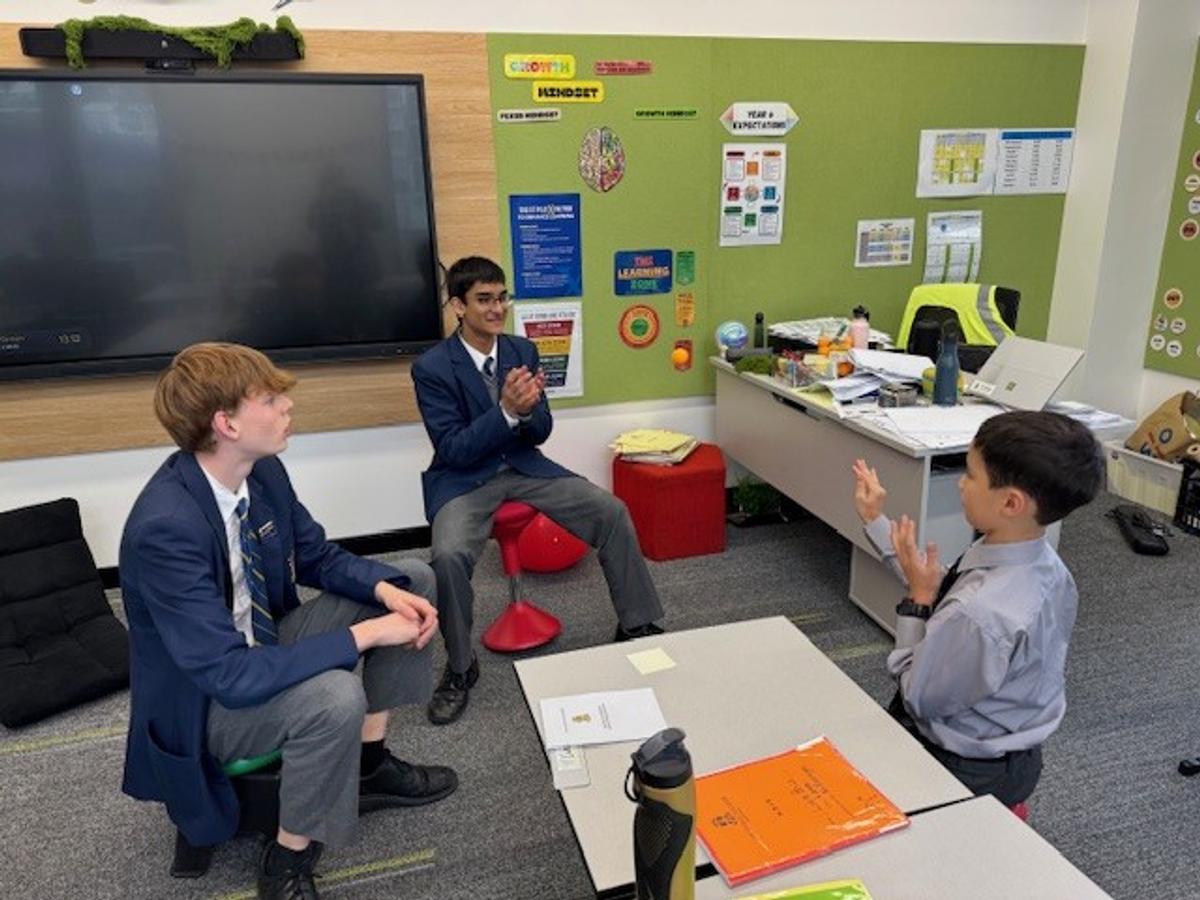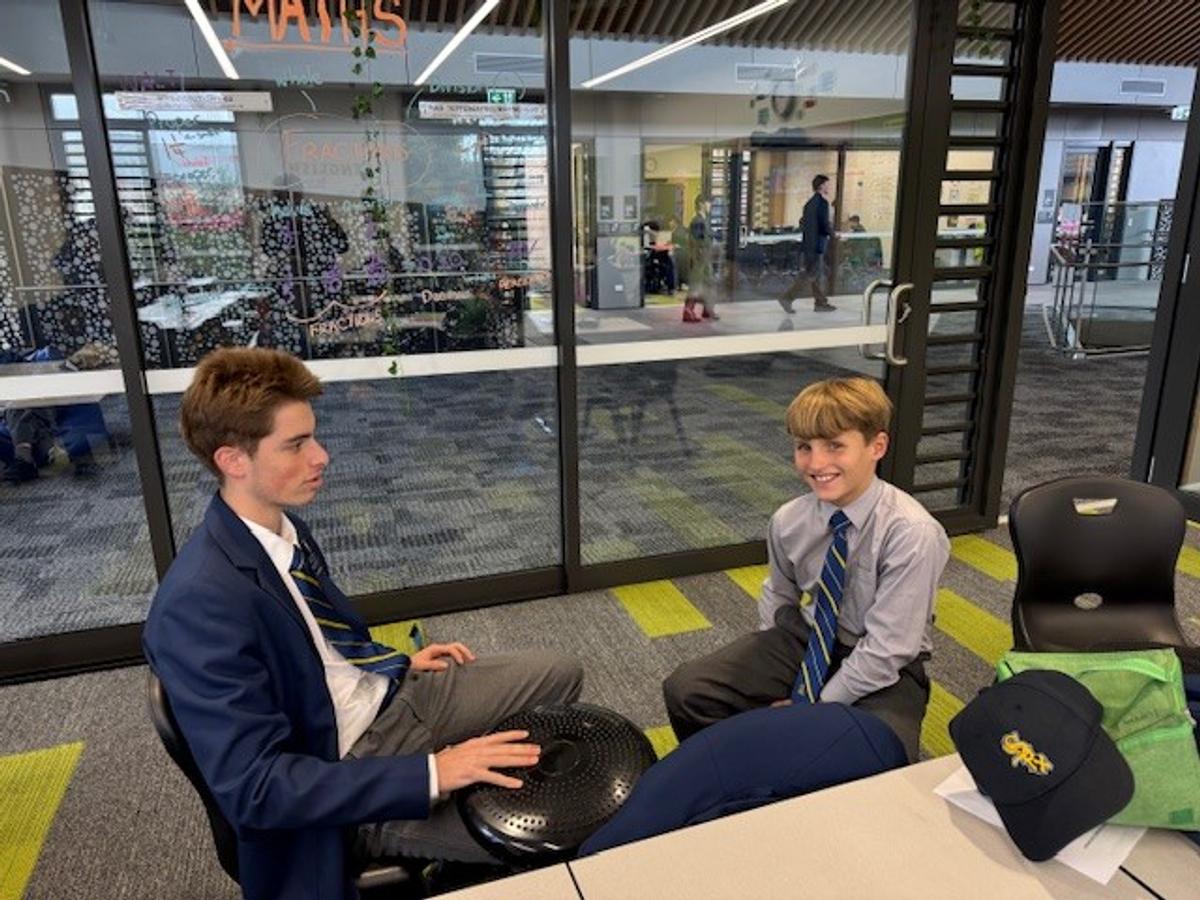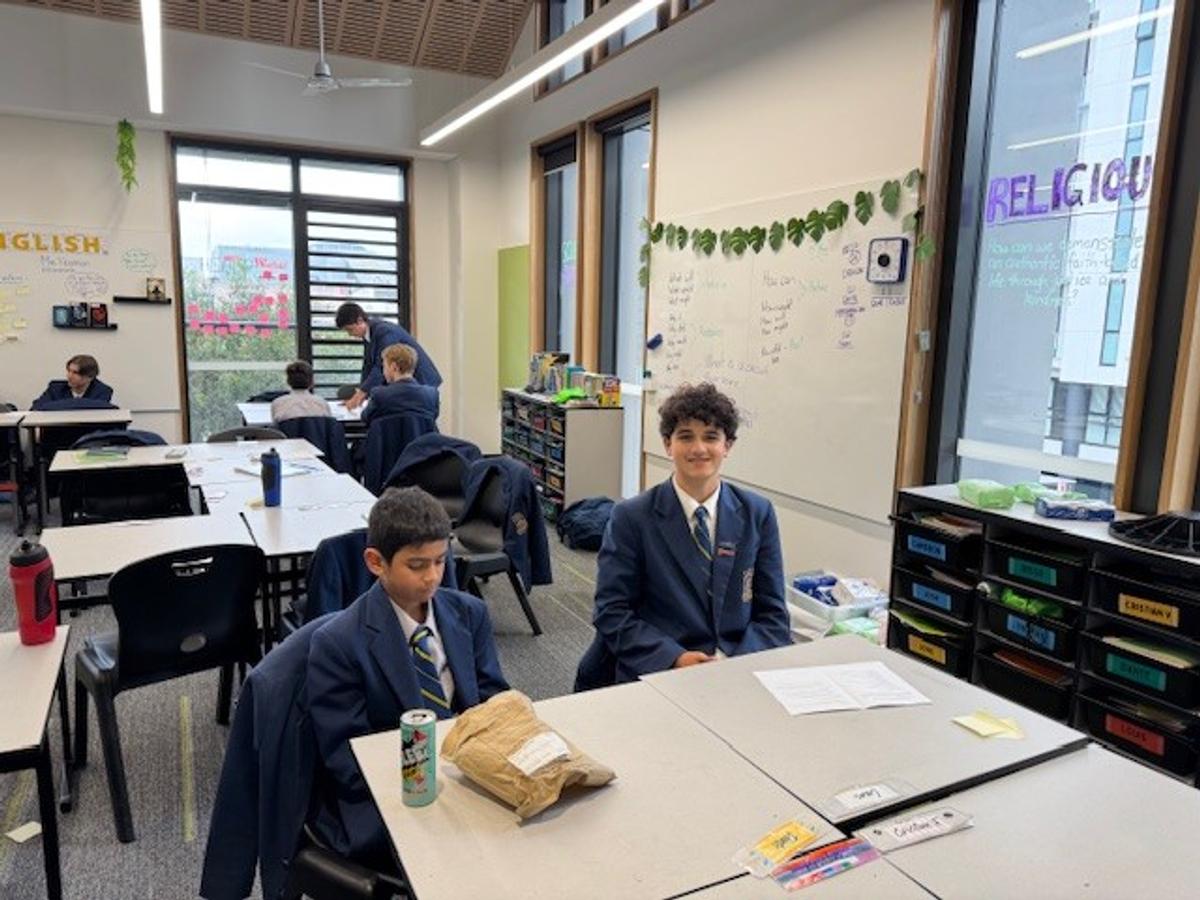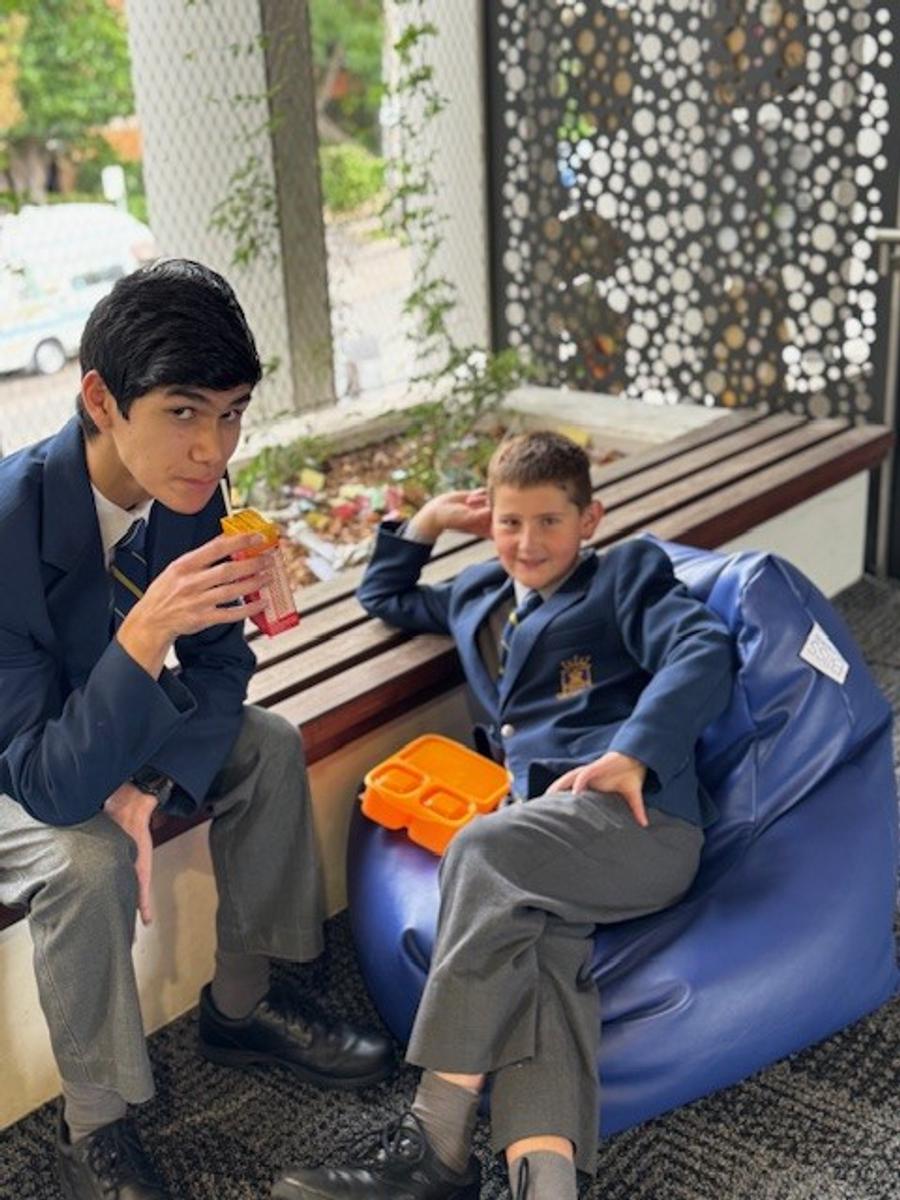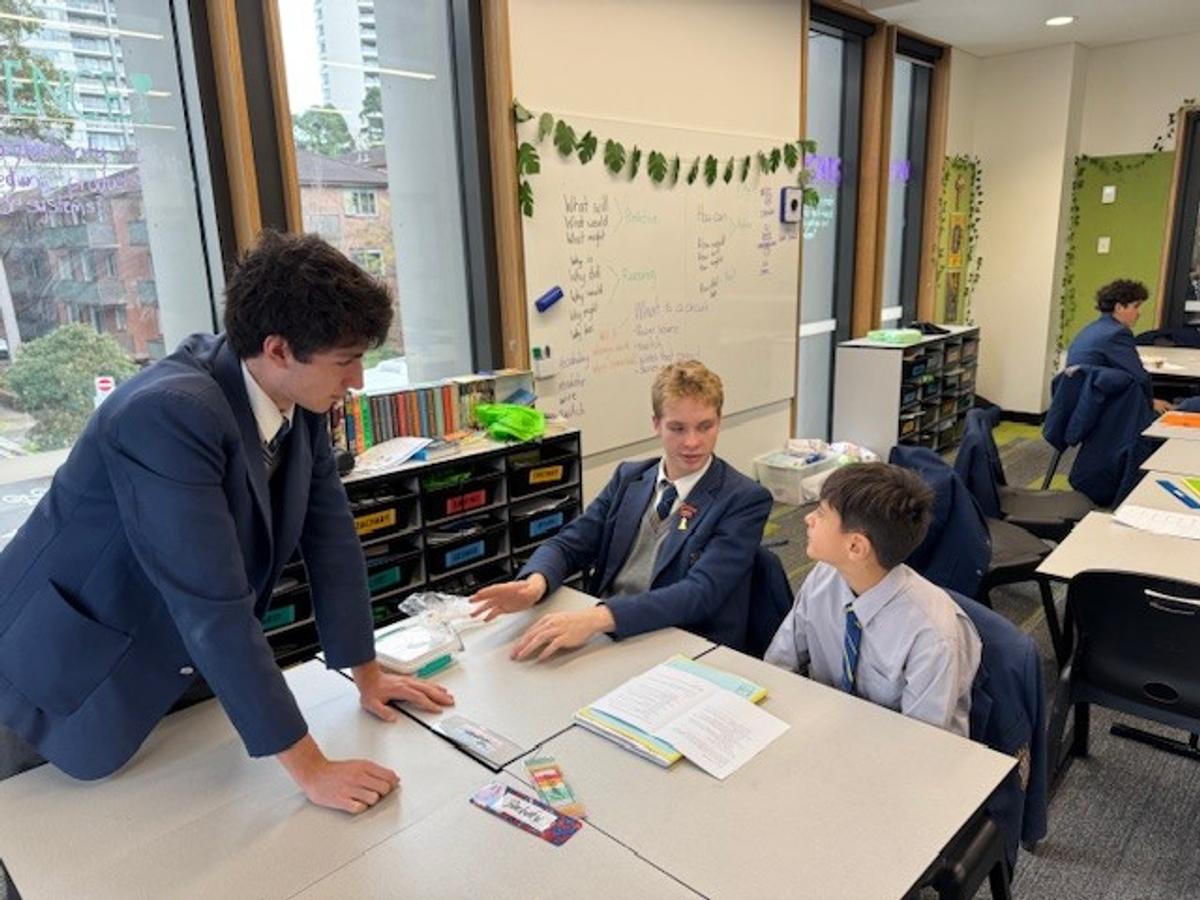Pastoral Care

- Peer Mentoring
- My Mind Check
- Things to know about child and adolescent mental health
- Free Wellio Parent Webinar - tonight
Peer Mentoring
Peer Mentoring officially started on Tuesday with a group of approximately 70 Year 11 and Year 5/6 students. The first session is a get to know you session where a connection is formed and built on over the next two terms.
Mentoring is an important program which the college greatly values, whereby senior students provide emotional support and friendship towards our younger students. Junior students are also given advice and guidance from our senior students in a one-on-one connection. This can help the junior students build their self-esteem, confidence and resilience.
Part of this program involves senior mentors meeting with their mentee once a week during lunch, over Terms 2 and 3. At the end of each term there will be an offsite activity.
My Mind Check - Positive Wellbeing Initiative
As part of our commitment to strengthening our pastoral care practices, the College is utilising a new evidence-based initiative called My Mind Check to conduct mental health and well-being check-ins for students in Years 5- 12. Research suggests that routine mental health check-ins within a school environment provides a way for students to regularly self-reflect and report on their mental wellbeing, assisting students to become more attuned to changes in their mental health. These check-ins will ensure we understand how students are doing at a given point in time and identify students who need information and resources to stop them falling through the cracks. My Mind Check has been developed by experts and informed by research conducted within Australian Schools.
What is My Mind Check?
My Mind Check is an evidence based digital check-in tool to help schools understand more about the mental health and wellbeing of their students, and to provide early intervention in the prevention, management and treatment of mental health concerns. It provides real-time data about student mental health and well-being. Built on research by Macquarie University, My Mind Check is operated by Macquarie University on behalf of the Commonwealth Department of Education (Commonwealth).
What does a check-in involve?
Check-ins are completed via an online portal during school time and with the supervision of a school staff member. The check-ins take approximately 10-15 minutes to complete. Your child will be asked to answer multiple-choice questions about mental health and wellbeing topics such as anxiety, peer victimisation, attention and mood. Completing a check-in does not diagnose mental health disorders and does not replace an assessment or support provided by a mental health professional.
What are the benefits of my child taking part?
Many young people in Australia experience difficulties with their mental health and wellbeing, and this can impact their school experience and learning. My Mind Check provides the College with information about how students are coping and enables us to quickly identify those students who may benefit from access to support and or services.
Check-ins will take place 1-2 times per year as part of our commitment to the development of positive well-being across the College. Year 5 and Year 11 students have recently completed their first check-in with other grades to be scheduled in the coming weeks.
Other parents will soon receive an email outlining the initiative in detail and will be required to give consent for your child to participate. If you would like further information about My Mind Check please visit the My Mind Check website:
https://mymindcheck.org.au/about/
Things to know about child and adolescent mental health
Being mentally healthy during childhood and adolescence means reaching developmental and emotional milestones and learning healthy social skills and how to cope when there are problems. Mentally healthy young people have a positive quality of life and can function well at home, in school, and in their communities. This ability to function ensures their overall wellbeing and resilience. Here are six key points about child and adolescent mental health:
Developmental Milestones
Good mental health in children and teens goes hand-in-hand with hitting those expected benchmarks in how they think, feel, and interact with the world around them. This includes things like learning to express themselves clearly, dealing with emotions in a positive way, and building strong friendships.
Emotional Wellbeing
Strong mental health in children and teens is like a foundation for their overall wellbeing. It empowers them to navigate the world through healthy thinking, emotional regulation, and positive social interactions. This includes learning to communicate effectively, manage emotions constructively, and build strong, supportive relationships.
Risk Factors
Stress, trauma, adverse childhood experiences, and toxic environments make it difficult for a child to thrive.
Coping Skills
Equipping children and teens with healthy coping mechanisms is an essential investment in their future wellbeing. These skills empower them to navigate life's inevitable challenges, bounce back from disappointment, and manage stress in a constructive way.
Supportive Relationships
Strong, positive relationships with family, friends, and teachers are the building blocks for life-long emotional wellbeing. These supportive connections nurture resilience, helping young people navigate challenges and bounce back from setbacks.
Is it normal or should I be concerned?
It's essential to distinguish between typical developmental phases and potential mental health problems. While some moodiness or defiance is normal during adolescence, persistent or extreme behaviours may indicate a deeper issue. Finding meaningful and effective ways of Investing in child and teen mental health is like planting seeds for a strong and resilient future. Early intervention allows us to identify and address any emerging challenges promptly, preventing them from evolving into more serious problems for the individual as well as the wider community. The state of child and adolescent mental health in a school community can also directly impact wellbeing, morale and functional effectiveness of not only staff, but also other students. As the proportion of young people with concerns about behavioural or mental health balloon, fostering meaningful and engaging learning experiences becomes an uphill battle for both teachers and students.
Free Wellio Parent Webinar - tonight
Wellio are offering a free parent webinar on Managing Device Use.
Thursday 22 May at 6:30 pm (please note, the incorrect day was previously published)
Join in to explore the following strategies:
Balance Screen time
Encourage Responsible Device use
Maintain Family Connections
Mr Martin Gillogly - Assistant Principal, Pastoral Care

